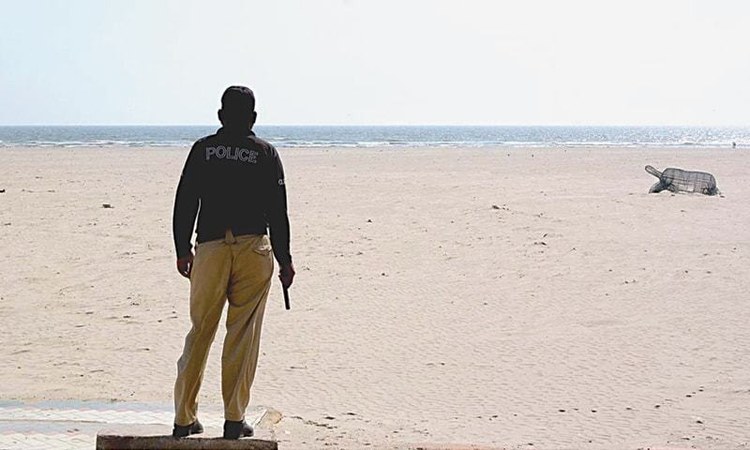The Karachi-wide lockdown will hopefully bear fruit in more ways than one.
First and foremost, it will, as the phrase is now frequently used, ‘flatten the curve’ of the spread of Covid-19 — Karachi has been getting cases of ‘local transmission’ at an alarming pace. But there may be other benefits. The awareness of keeping our city clean is one of them. That being said, every picture, like every coin, has two sides.
The city’s Seaview area is, arguably, the most visited recreational spot (in normal circumstances) in the provincial capital. Anyone who either lives near the beach or has been to it for fun will find it hard to disagree that people visit it in the thousands seldom giving a thought to: how not to make the seaside dirty.
The fun and frolic goes on till pretty late in the night, and if you happen to get up early in the morning to go for a walk on the beach you will notice all kinds of garbage and trash lying on the sandy shores of Seaview. The authorities can’t do much about it, and their hard-working janitorial staff does its best to clean the sand as diligently as possible. Still, the unpalatable effects of pollution are difficult to ignore.
The post-lockdown situation cuts an entirely different picture, and one is not sure how to describe it because it has two distinctly opposite features. First, although the law enforcement agencies strictly patrol the area and barriers have been erected at some important entry and exit points, if you happen to pass by Seaview (or better still, live there) you will immediately notice that it is clean as a whistle.
The beach is clean as a whistle without people during lockdown but the silence is discomforting
The calm waters of the Arabian Sea can be seen — with shimmering, spotless sand in the foreground — from a fair distance, and its poetic vast expanse is nothing less than an awe-inspiring sight. It makes you wonder: why can’t the sea look like this all the time? Cleanliness is a virtue. It’s a synonym for beauty.
The second feature of how Seaview looks in a sans-human environment is tougher to describe. The silence is discomforting. The visuals are eerie. It seems as if the sea is missing someone, like a child that has no friends to share its stories with. Every now and then, a car whizzes by and disappears into the adjoining streets. Everybody is in a hurry to get to a safe place — which is the right approach to present-day life.
Yes, the air is much purer to breathe. But who to enjoy this experience with? Apart from ‘flattening the curve’, the word ‘dystopia’ is these days being bandied about a lot. What is nature without humans and other species that are its integral parts? The dystopian situation that has arisen out of the coronavirus outbreak is a double-edged sword. Let’s hope we pass this test with flying colours; and when the dust has settled, both the sea and humans come out as unscathed as possible.

